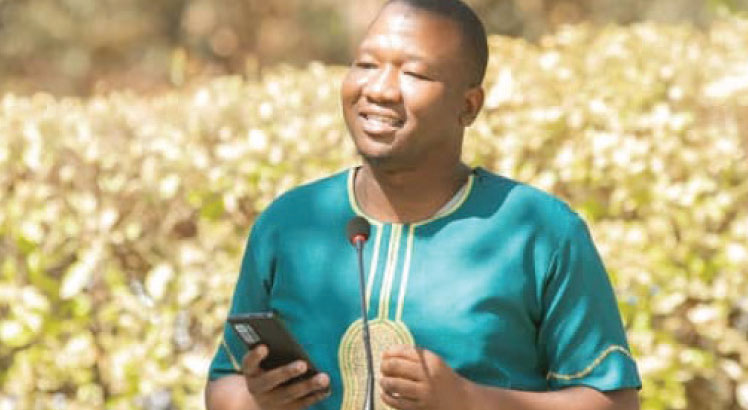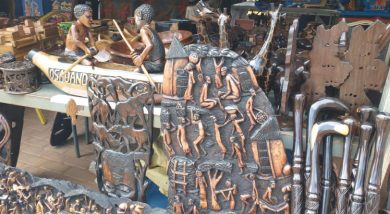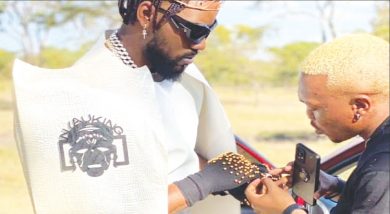Digesting rising poetry Voice in Malawi
The country is not behind as far as poetry production and recitals are concerned. It has witnessed a proliferation of poetry and a day cannot pass without playing on our local radio and TV stations.
But if the present poetic works can be compared to the works of Malawian legendary poets such as Jack Mapanje, Mpalive-Hangson Msiska and Lupenga Mphande just to mention a few, a big difference will be noticed in terms of composition.
Celebrated poetry gurus in the country; Benedicto Okomaatani Malunga, Chigo Gondwe Chokani, Qabaniso Malewezi and Ndongolera Mwangupili have aroused debate saying the proliferated work particularly of up-and-coming poets leave a lot to be desired. They believe that the majority of local content produced by the new blood does not meet the expected standard.
They claim that poetry is not just for fame and acclaim, but for the transformation of minds and societies, a thing which is missing in most of the poetic work, dominating the airwaves.
Speaking in an interview Thursday, Malunga said there are few among the up-and-coming poets that know what poetry is.

“The majority who blindly and hurriedly write purportedly to court fame are achieving the total opposite as informed consumers of poetry dismiss their half-baked pieces promoted by some radio and television producers who have no clue as to what real poetry is,” he said.
Malunga further disclosed that, when honestly criticised for producing shoddy work, most budding writers are reluctant to take advantage of wise counsel.
“Instead, they allege that their mentors do not want to be joined by new writers. This leads to the retardation of their already feeble craftsmanship.
The poet said one cannot master writing poems with cognitive laziness.
On her part, Chokani said it is unimaginable that some writers who have no knowledge of basic orthographic rules of Chichewa believe that they can compose acceptable poetry.
She said this is one symptom of reluctance to employ due diligence when crafting poetry.
Chokani said standard writing boils down to training and learning of poetry and literature in general.
“Most people do not read books or newspapers fully to analyse and note how different concepts are packaged stylistically and grammatically.
“This is something poets can easily correct by starting to read more creative books by accomplished authors, and also acclaimed online poetry anthologies,” she said.
Chokani further said aspiring poets can study those and how different writers and poets express themselves and construct their works.
“They can do free online grammar and writing courses to improve the quality of their writing and delivery. This is an important aspect of the art because, while our talents may be latent or in-born, we need to hone them like any other craft skill,” she said.
Chokani added that it is also important to attend regular poetry sessions where they are able to have their work critiqued in a safe space by other poets or poetry lovers.
Qabaniso Malewezi, who has authored several poetry collections, said with digital it has become easy for one to record poetry and share it on social media platforms without thoroughly critiquing the work which has led to its flooding on the market.
“Production has come easy nowadays. Anyone can wake up and record and share the work in the public domain. We need to work hard to do quality work. We need to critique the work first.
On his part, Mwangupili, the renowned published poet of Fragments of Broken Voice said most of the poems aired on local radio stations are writing for local audiences, a thing that cannot grow the sector.
“We need to put more effort. We limit our poetry to the Malawian audience. We have to think about writing to the wider audience and reflect on issues beyond us. That is when we can sell our poetry across our borders,” he said.
When contacted on the matter, Malawi’s Poetry Association president Robert Chiwamba, a multi award-winning vernacular spoken word poet, said he has no problem with the quality of the work from the new generation of poets.
“If you look at critics of the work of the recent crop of poets, they are those who believe in traditional British poet style. They do not accept the new poetic genre of spoken word yet it is receiving more acceptance than the traditional style they are talking about,” he said.
Chiwamba said poets cannot live by the old poetic style but that poetic work should incorporate new things.
“We did research as an association and established that people enjoy the new form of spoken word poetry more than the old style,” he said.
University of Malawi literature lecturer Emmanuel Ngwira in his presentation ‘Contemporary Vernacular Oral Poetry from Malawi: A search for New Metaphor’ said that the popularised vernacular poems in the country are genuine pieces of literature which should not be mistaken as mere comics.





